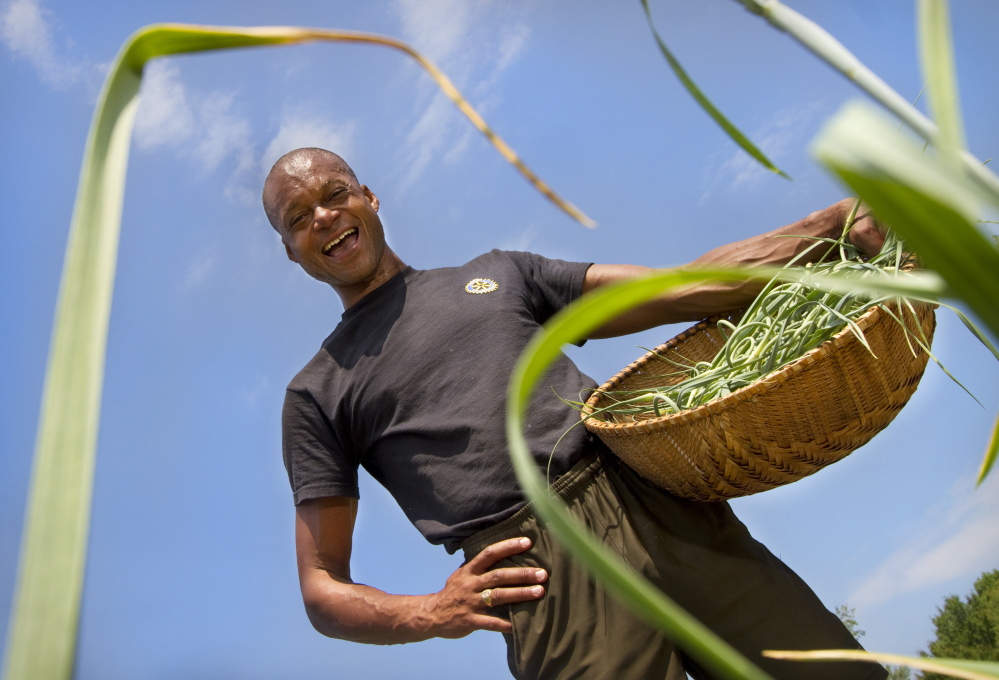AUGUSTA — House lawmakers voted Tuesday to move forward with a proposed constitutional amendment declaring Mainers have a “right to food freedom,” a step that could increase tensions among local food producers, government regulators and the agribusiness industry.
The amendment contains declarations of Mainers’ “natural, inherent and unalienable right” to grow, acquire and consume food of their own choosing. Yet the lofty-sounding proposal stems from the growing debate in Maine and nationally over what some “local foods” advocates and small farmers view as over-regulation by the government.
The proposed amendment – which would need voters’ ratification – comes after more than a dozen Maine towns have adopted “food sovereignty” ordinances declaring that farmers can sell directly to consumers, without government licensing or inspection.
“It is time to take back the food freedom that our ancestors enjoyed,” said Rep. Craig Hickman, D-Winthrop, sponsor of the constitutional amendment and co-chair of the Legislature’s Agriculture, Conservation and Forestry Committee.
If voters approve the proposed amendment, Maine would become the first state in the nation to write into its constitution rights regarding citizens’ ability to grow, buy and eat food. The amendment also would seek to guarantee Maine residents’ right to “saving and exchanging seeds,” an issue playing out in the courts nationally between farmers and producers of patent-protected seeds.
Supporters contend the amendment is necessary to address excessive regulation and provide a legal defense in the courts for “food freedom” issues.
But while supporters insist the proposal would not invalidate any food safety laws, critics warned that the amendment’s vague language could carry sweeping, unintended consequences in the areas of inspections and food safety regulation. Critics also questioned why the measure was even needed.
“We don’t need to change the constitution of the state of Maine to allow for something that is already happening and not being denied to anybody that I have ever heard of,” said Rep. Jeffrey Timberlake, R-Turner, whose family operates one of the state’s largest apple orchard businesses.
TWO-THIRDS VOTE NEEDED IN LEGISLATURE
The Maine Constitution already contains 24 separate sections under the “Declaration of Rights” article dealing with everything from religion to guns, seizure of property and a prohibition on any “title of nobility or hereditary distinction.” Proposed amendments to the constitution must pass both chambers of the Legislature by a two-thirds margin and then be approved by the majority of voters statewide.
The proposed “right to food” amendment took an initial step forward Monday when the House voted 97-45 – narrowly surpassing the two-thirds mark required for a constitutional amendment – to send the bill to the Senate. The bill, L.D. 783, was the subject of spirited debate but received bipartisan support in the final vote.
“I’m not voting here today to change the constitution. I’m voting to give my constituents the opportunity to speak,” said Rep. Donald Marean, R-Hollis.
The proposed amendment states: “All individuals have a natural, inherent and unalienable right to acquire, produce, process, prepare, preserve and consume the food of their own choosing, for their own nourishment and sustenance, by hunting, gathering, foraging, farming, fishing, gardening and saving and exchanging seeds, as long as no individual commits trespassing, theft, poaching or other abuses of private property rights, public lands or natural resources in the acquisition of food.”
POTENTIAL BATTLE OVER PATENTED SEEDS
The language about “saving and exchanging seeds” could draw the attention of the powerful agribusiness sector. Corporations such as Monsanto, which develops and patents seeds that are altered to resist pests or have other beneficial growth traits, have filed lawsuits against farmers who saved seeds from crops grown with the patented product.
A group of Maine organic farmers fought unsuccessfully in the federal courts to challenge Monsanto’s patents on genetically modified seeds.
The debate over “food sovereignty” has been simmering in Maine for years. Small-scale farmers and food activists contend that government over-regulation – largely in the form of unnecessarily stringent licensing and inspection requirements – is restricting consumers’ access to healthy, locally produced food. They also argue that the federal regulatory scheme is weighted to benefit large corporate farms at the expense of smaller operations.
POTENTIAL IMPACT ON FOOD SAFETY SYSTEM
In Maine, the debate often has centered over issues such as sales of unpasteurized or “raw” milk, producers’ ability to sell directly to consumers, and regulation of on-farm slaughter operations.
Maine agriculture officials contend the proposed constitutional amendment is, at best, unnecessary and at worst potentially harmful.
“The problem this bill is trying to address is unclear, and it is also unclear why this topic would rise to the level of a constitutional consideration,” Ellis Additon, director of the Maine Bureau of Agriculture, Food and Rural Resources, said in testimony to a legislative committee last year. “Finally, we encourage the committee to fully explore and consider the potential consequences this proposal may have on Maine’s food safety system and the potential resulting negative impacts on all Maine citizens.”
The Maine Farm Bureau also testified in opposition during last year’s public hearing on the bill, which was held over until the current session.
Although the proposal received bipartisan support in the Maine House, Democrats were more likely to back the measure than Republicans. The bill will need to pick up two-thirds support in the Republican-controlled Senate in order to be sent to voters for consideration, needing a simple majority to pass. The governor’s signature isn’t required.
Send questions/comments to the editors.



